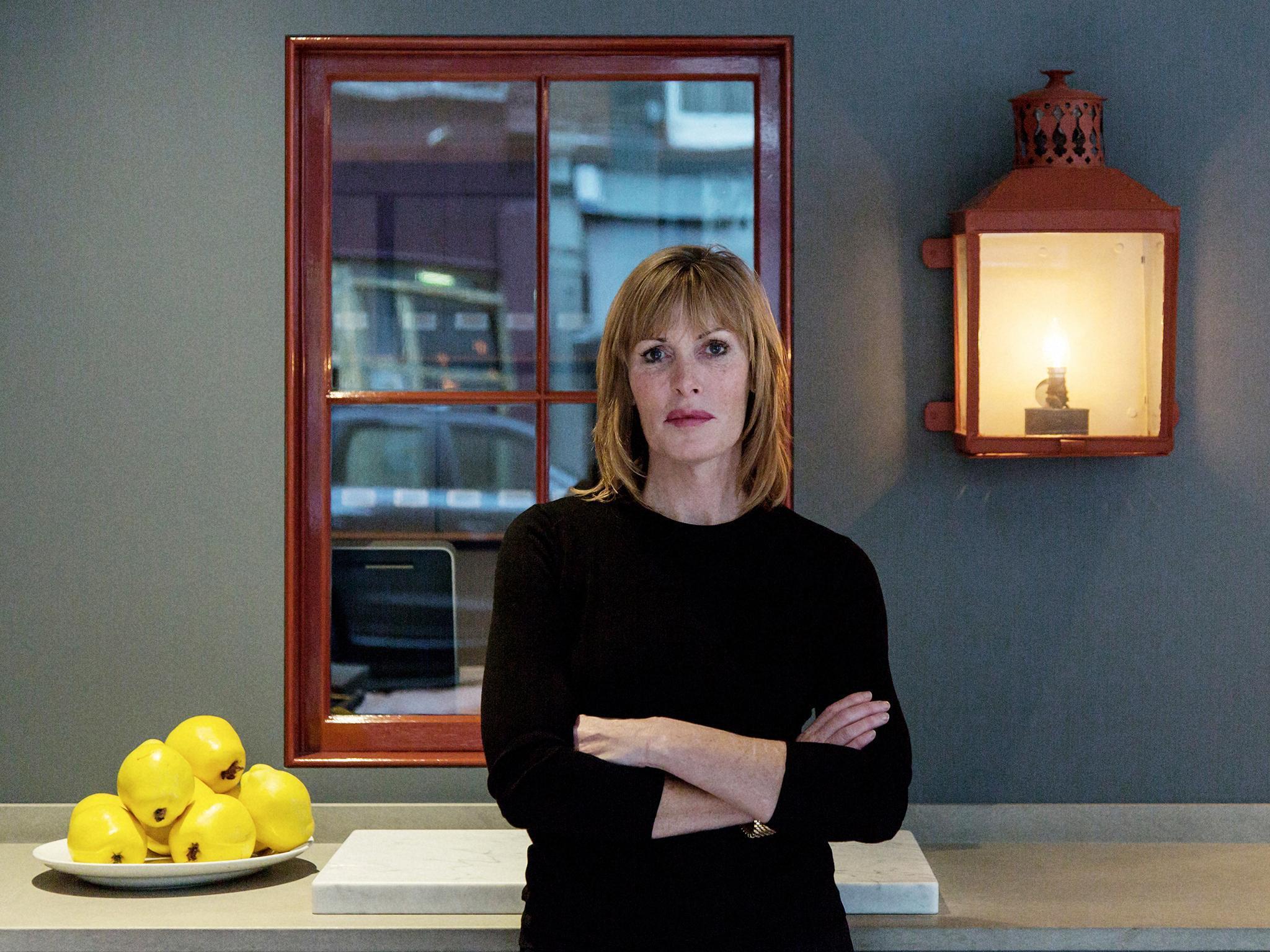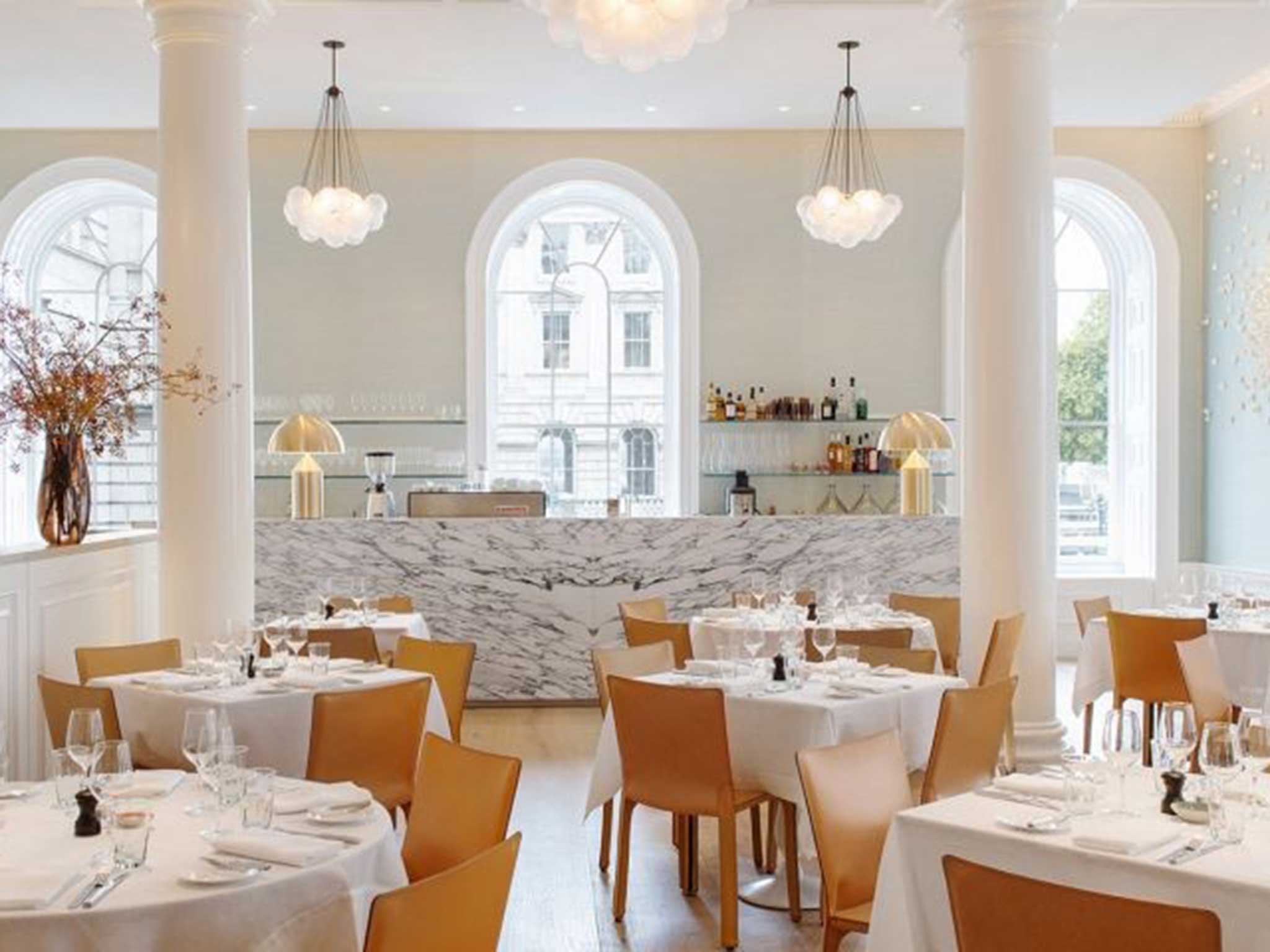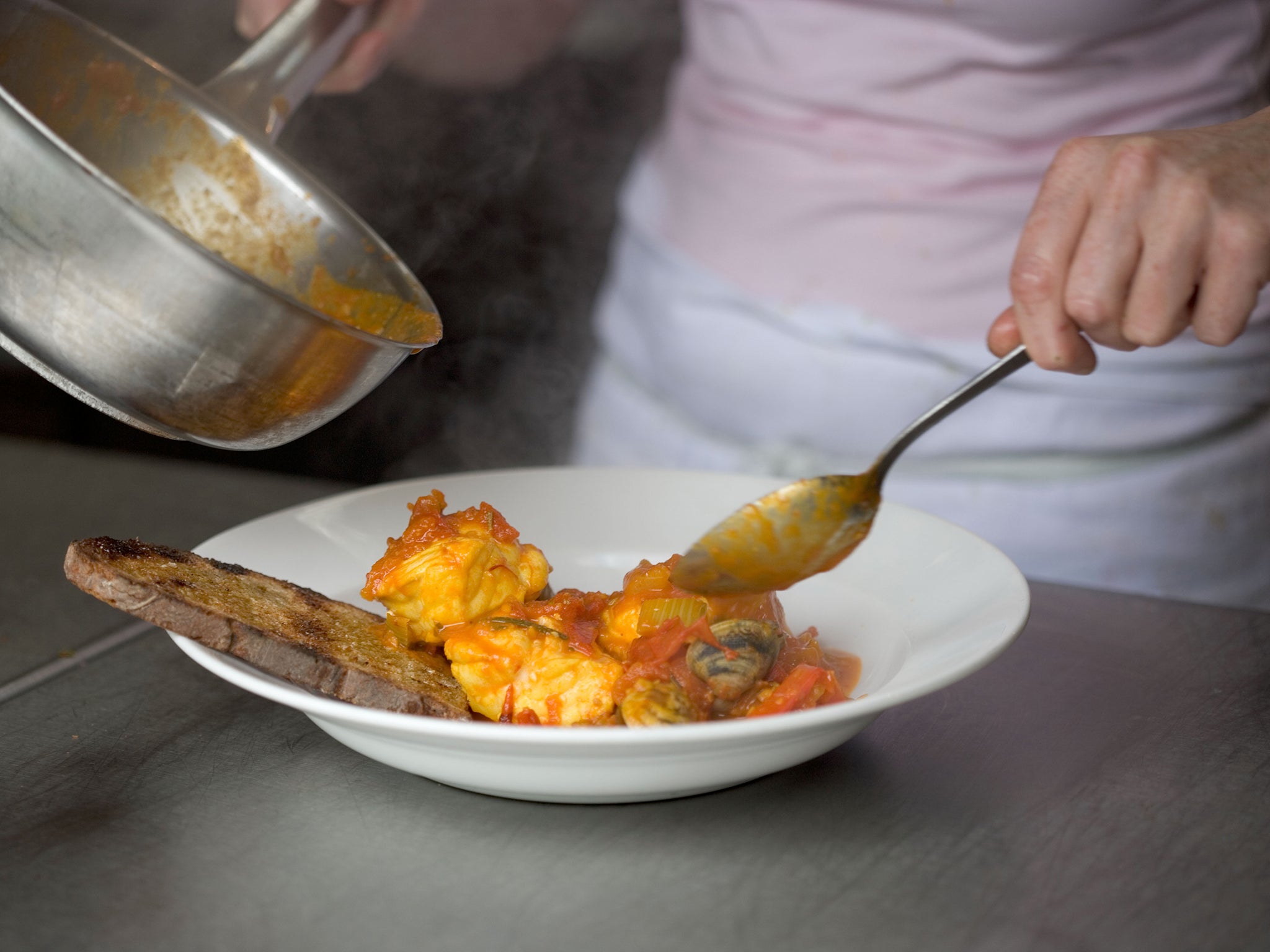Skye Gyngell on plastic waste, working with women and the importance of passion
After opening her own restaurant Spring, Skye is adamant to be as eco-friendly as possible, as well as having as many women in her kitchen as possible too, she tells Hope Howard

Describe the moment when you knew you had to be a chef
I fell upon being a cook by accident. It began as a weekend job when I was 17 and at that time I had plans to be something completely different. There really wasn’t an "aha" moment, but I felt a sense of ease and rightness when I was around food.
If you had moved back to Australia after training as a chef in Paris, how do you think your career would have played out differently?
I sometimes wonder how things would have been if I’d returned home, but it’s impossible to say. I’m so happy doing what I do right now. I’d hope it would be similar – whatever it was it would definitely be involved with cooking and produce.
Since leaving Petersham Nurseries Cafe and opening your restaurant, Spring, how did you set out to do differently?
I wanted Spring to be different in every way to Petersham, not because I didn’t love my time there, but because it wouldn’t have felt right to try and reproduce it in any way. Petersham was an accidental restaurant in so many ways. Spring was very much planned. We definitely spent a lot of time on a very strong back of house infrastructure, which Petersham didn’t have. We made sure to have great staff facilities, storage and office space. We have so much space at Spring, so we can make all our own bread, butter, liquors. We simply didn’t have the space to do that at Petersham. I cook from my heart and so from that point of view the food is very similar.
You have described your restaurant’s design as “feminine, yet strong”. What inspired this?
I was definitely inspired by how I felt and where I was in my life. I felt strong and capable, but in a very female way. I wanted the restaurant to reflect that. I also really love a clean, modern aesthetic and it was exciting to put my food in that context.

In your opinion, what is the best comfort food?
Eggs, always. It’s what I cook for myself when I’m really tired and in need of warmth.
If you weren’t a chef, what would you be doing?
I think, perhaps, I'd be a gardener. I find gardening fascinating and inspiring. I’m always in awe of how things grow.
Has there ever been a time so tough that you considered throwing the towel in?
Yes, definitely. The restaurant industry was a very different place 30 years ago – it felt quite brutal sometimes. It was a very male dominated environment and I worked very long hours. Often I'd be working in basement kitchens with no natural light. It just didn't feel like what I’d signed up for and I left working in professional kitchens for a few years. I always stayed around food though, teaching, writing and freelance cooking. Eventually, I was lured back and I’m very glad I was.
You created a 'scratch menu' as a way to combat food waste at your restaurant. What is this and why did you feel inspired to do this?
I was inspired largely because we work with one biodynamic farm, Fern Verrow. We had made a commitment to sustain their business and take as much of their produce as we could. The produce is so beautiful and fresh that it seemed a terrible waste to discard parts of the vegetables that we classically overlooked. I also realised just how much food is thrown away – 40 percent of all grown – and that felt like such a crime. I thought the scratch menu was a good way to highlight the issue.
If you could pass down only one recipe to your two daughters, what would it be?
It would probably have to be a pot roast chicken with pumpkin and sage that I have made for them ever since they were tiny. It’s what they always ask me to cook for them when they come home.
As a chef that uses seasonal ingredients, what is your favourite time of year to cook?
Autumn is the richest month of the year – when the abundance of summer slides into a season that offers so much. There is never so much choice as there is in the month of September. It groans with beauty.
Other than when you are cooking, when do you feel the most creative?
I loved the whole process of creating Spring. When creating Spring, 95 percent of the people helping me were women. I found working with all them to be deeply creative and inspiring. I’m working on something similar at the moment, and it’s very challenging and invigorating.
You created a speaker series at Springto allow people to eat amazing food while learning about some of your core philosophies. If you could have anyone in the world (dead or alive) speak at your restaurant, who would it be?
I’d love to have Michael Pollan come and speak.
Which utensils/ tools can you not live without in your kitchen?
Pestle and mortar, good knives and tins.
What did you take away from the experience of writing for British Vogue and the Independent on Sunday?
I loved writing for both; I learnt to think about food in a way that I could express it to others. Writing is definitely a muscle that needs to be worked though. I feel almost illiterate now. I don’t write at all.
You only have 15 minutes to make yourself something to eat. What do you whip together?
Very often, I'll make a salad of some description. But, it’s more than a salad. It’s everything left over in the fridge either at work or a home – all bound together with really good extra virgin olive oil, a good pinch of sea salt and a squeeze of lemon juice. It’s my go to meal always.
If you could change something about the food scene in the UK, what would it be?
I’d like to let everyone know that it can be a very viable and good industry to work in, for both men and woman.
In your opinion, what is the most difficult culinary technique to learn?
Seasoning – it’s the most important and you need to never assume.

What do you wish for the next generations of chefs?
I hope they enjoy what they do and try and find a work-life balance, so they may find a way to continue in the industry, without burning out.
You wrote a book called My Favourite Ingredients. What are a few of your favourites at the moment?
It’s whatever season I’m in. I love all the beautiful root vegetables around at the moment. Specifically, I'm enjoying brassicas, which is rich in iron and a beautiful inky green colour. Citrus is also around, so I use a lot of Meyer lemons, blood oranges and yuzu kumquats. I also love the new seasons extra virgin olive oil. It is so pungent and grassy. I’ve learnt to be happy and content, whatever the season is.
In the male dominated field of professional cooking, do you see any changes that the current women’s movement is making on this industry?
I think there definitely more woman in the kitchen. At Spring, 15 of the 24 chefs are woman. I’ve always had a lot of woman in my kitchen though.
What qualities do you look for in people you hire to work at your restaurant?
They must be passionate about produce – everything else can be learned.
Your new eco-friendly initiative at Spring plans to get rid of all plastics in the kitchen. What do you plan to use as an alternative?
I met Sian Sutherland at the end of last year. She was giving a talk at A Plastic Planet event and I was shocked and ashamed to learn of the issues surrounding plastic and the ocean. I made a commitment to remove all single use plastic from the restaurant by the end of this year. The really exciting thing is that there are lots of really viable alternatives. At first, I was feeling completely despairing, but I'm now feeling a lot more hopeful. It is actually possible to eliminate a lot of plastic from your life.
What is the most important characteristic for a great chef to have?
Enthusiasm, passion, generosity and a big heart. You’ve got to love to feed people.
Join our commenting forum
Join thought-provoking conversations, follow other Independent readers and see their replies
Comments
Bookmark popover
Removed from bookmarks